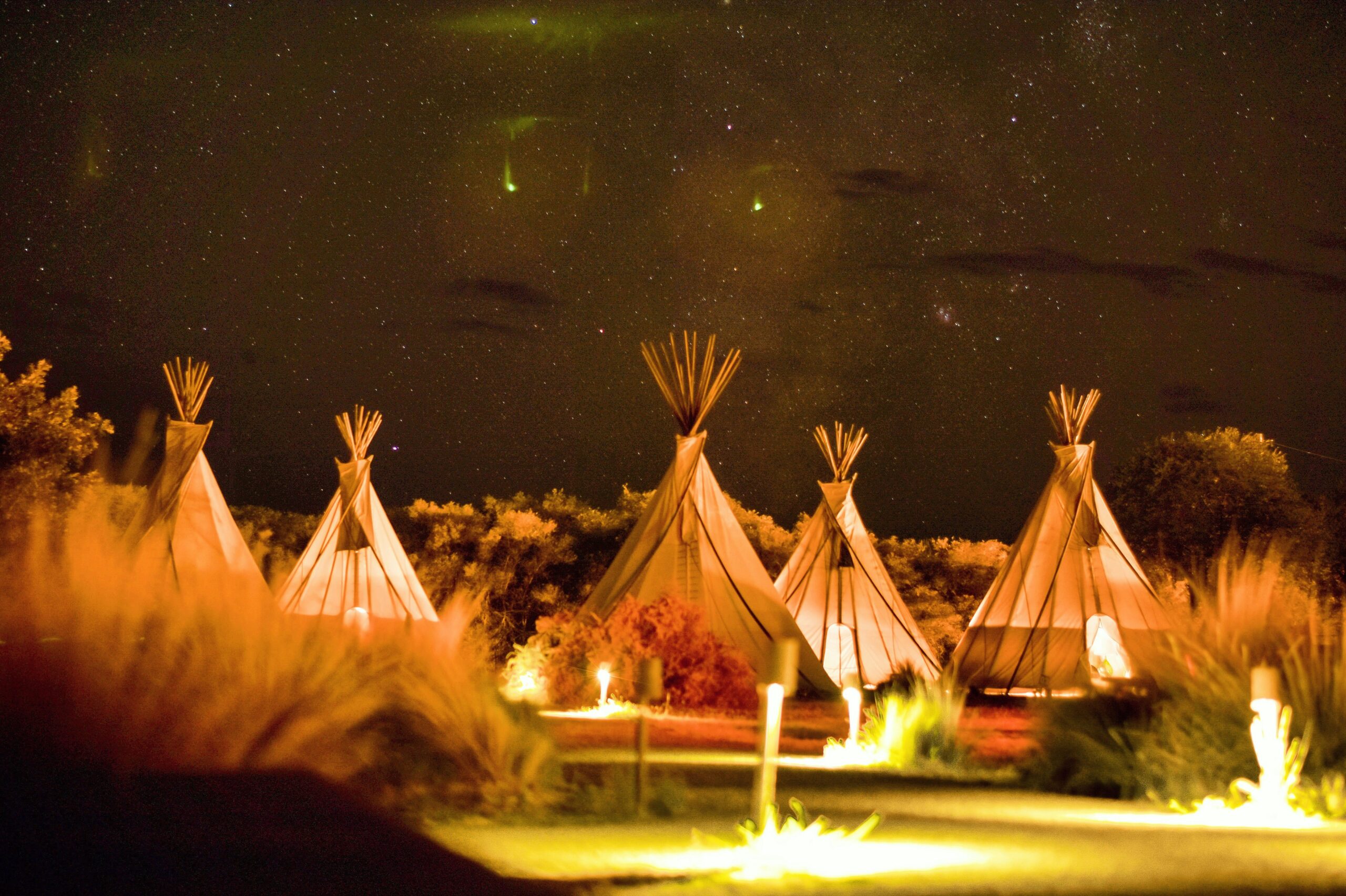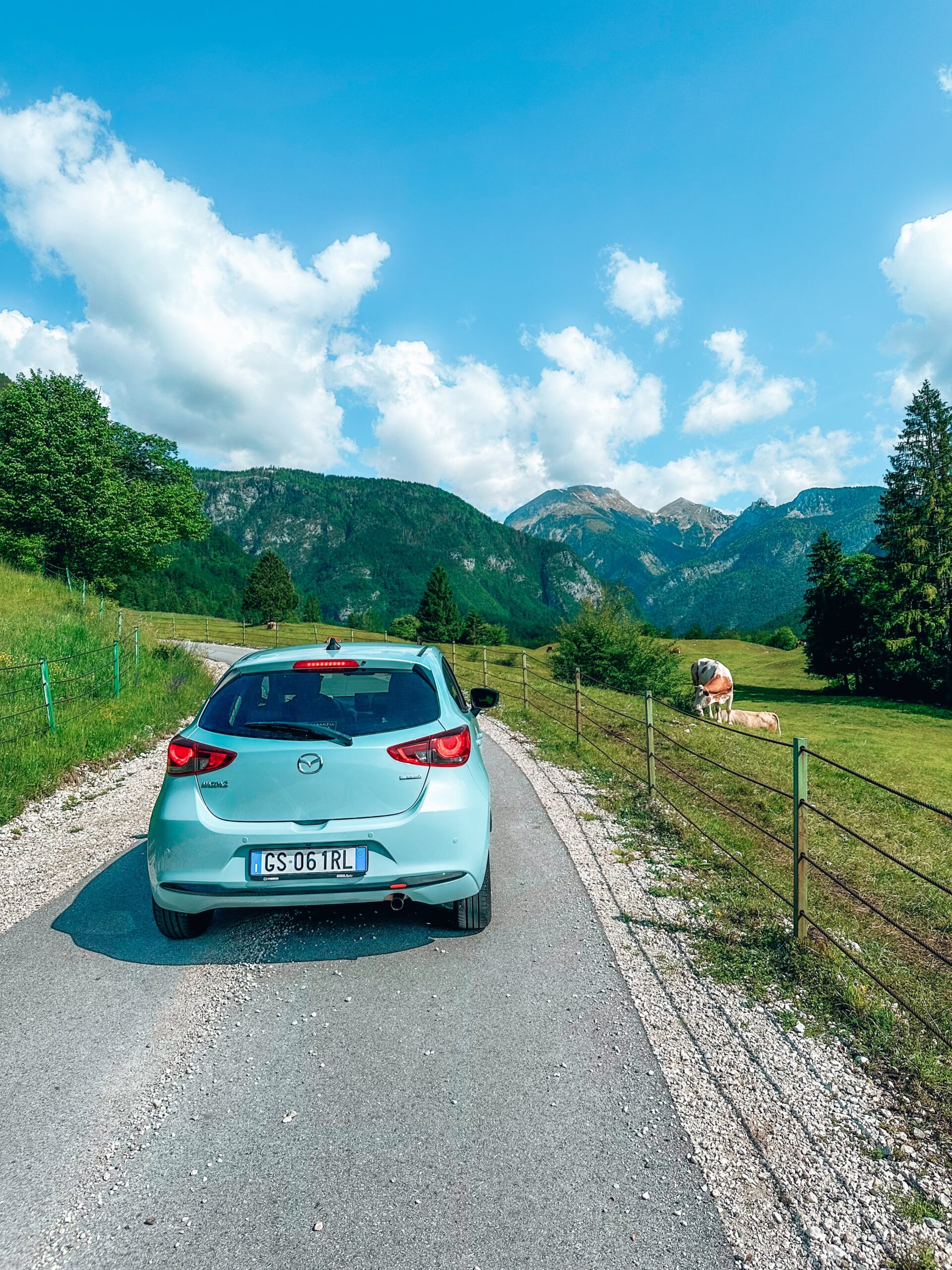Wild camping for campervans in the UK means parking away from campsites, usually in a natural spot in the wilderness. There aren’t any amenities at wild camping spots since, as the name suggests, they are out in the wild! Camping in this way isn’t legal in England, Wales, or Northern Ireland. Wild camping is also only legal in Scotland for tent campers, but it’s better well-received from the North of the country.
So, let’s get into everything about wild camping for campervans in the UK for 2025!
Wild camping for campervans in the UK is a tricky issue travellers face. Wild camping isn’t legal in England, Wales, or Northern Ireland, so it’s best to stick to campsites and permitted spots only. In Scotland, wild camping is also not legal, but is better tolerated provided campervanners follow guidelines.
One of the joys of owning a campervan is the ability to head off to any corner of the country and enjoy nature at its finest, but what about parking overnight? Rocking up at a tranquil location in nature and staying for the night is considered wild camping, and although it’s a beautiful way to spend time in your camper, it isn’t accepted in many areas of the UK.
| >> CLICK HERE TO SHOP MY VANLIFE ESSENTIALS << |
|---|

Is Wild Camping Legal In The UK For Campervans?
Wild camping isn’t legal in the UK for campervans, with travellers in vans needing to park in permitted locations to remain legal. Some parts of the country accept campervans more than others, with Scotland being one of them. It’s still possible to find wild parking locations in the UK, but it’s essential to treat every park-up with respect, leaving it no different, or better than when you found it.
Along with helping clean up the environment, this also means keeping locals happy, by respecting the beautiful nature spots they’re used to seeing regularly. It’s also best practice to keep noise down, avoid running your engine early in the morning or late at night, and be friendly if local dog walkers make conversation!
Read: The first-time girls' guide to wild camping
The Best Areas For Wild Camping In The UK?
Finding wild camping gems in the UK is getting increasingly difficult with a rise in ‘no overnight parking’ signs, height barriers, and regulations. There are still some spots where it’s possible to park for a night or two, but it’s essential to leave no trace and respect the environment you’re surrounded by.
You can find some of the best spots for wild camping in the UK by heading off the beaten path and exploring forest tracks tucked away in the trees. I find using Google Maps or a similar mobile map app makes finding wild camping spots much easier. Viewing the map in satellite mode allows me to see where tracks will lead, and if there’s a spot to pull in.
Remember, this way of camping isn’t legal or widely permitted around the country, so don’t be surprised if you are asked to move on by a park ranger or the landowner. If this happens, pack all of your belongings away and apologise for the misunderstanding.
| >> CLICK HERE TO SHOP MY VANLIFE ESSENTIALS << |
|---|

Pros and Cons Of Wild Camping In The UK
Wild camping in the UK has many benefits, but since it’s not a legal practice, there are some downsides worth considering too! There are two sides to every story, and if you’re thinking about parking wild in your campervan, it’s worth exploring both of them.
Pro: Living Close To Nature
In addition to my passion for travel, living close to nature is one of the things that makes me love vanlife so much. Nothing quite compares to waking up to birdsong with the warmth of sun rays beaming in through the window. Wild camping allows us to connect with nature on another level where we can live and thrive alongside it, wherever we drive our homes.
Con: No Amenities
The substantial volume of campervans, motorhomes, and caravans in the UK means more people are finding wild spots, and unfortunately, some have been ruined due to rubbish and the dumping of toilet waste. Wild camping spots don’t tend to have any amenities, which can be a disadvantage to some, especially those without onboard facilities.
Wild Camping Tip: If you don’t own a campervan with on-board facilities such as a toilet, be sure to safely go outside, away from water sources, and dig a minimum of 15 cm into the ground.
Pro: It’s Free or Donation Based
Unlike campsites, wild camping is free as there aren’t typically any facilities to support you while you stay such as water, electric hook-up, showers, or waste disposal. In some parts of the country, local councils will create campervan parking areas, or ‘aires’ on a donation basis. Sometimes these locations are simply a parking spot, but others include fresh water, grey waste dump, and rubbish bins.
Con: Lacks Security
A reason many campers prefer parking at campsites is the added security it brings. With a locked gate standard for most sites, alongside friendly staff, and security cameras, the added safety of a campsite is appealing! In the wild, there’s no security other than the measures you’ve taken with your campervan.
Read: Vanlife Safety Tips For Solo Female Travellers
| >> CLICK HERE TO SHOP MY VANLIFE ESSENTIALS << |
|---|

3 Tips For Wild Camping In A Campervan
When wild camping in the UK, there are a few things you can do to make it easier to find wild spots and have a better experience staying in these magical locations.
1. Use Google Maps and Parking Apps
Finding wild camping spots can be hard, especially when campsites are the preferred way for campervan owners to travel around the UK. Thanks to apps such as Searchforsites and park4night, however, the vanlife community has worked together in locating and sharing these wonderful park ups.
2. Prepare To Have No Signal
Parking in nature usually entails driving away from cities and towns, which can lead to a lowering in signal. Getting away from screens can be rewarding, especially when working on a laptop or computer. But if you need access to good service, don’t expect to always get it from a wild camping park up.
Read: How To Get Wifi For Your Campervan
3. Make Sure You Have Sufficient Fuel
Carrying sufficient fuel in your campervan is always a wise idea, as travelling can be unpredictable, and fuel stations can become scarce in certain parts of the country such as in the depths of the Scottish mountains. When heading out to wild park in a remote spot, I always make sure to top up my fuel as I don’t know when I will next be able to fill up my tank, and I want to make sure I can continue my adventures!
Read: 10 Vanlife Essentials You Need For Your Campervan
| >> CLICK HERE TO SHOP MY VANLIFE ESSENTIALS << |
|---|

How To Find Free Overnight Parking For Campervans In The UK
Free overnight parking in the UK for campervans can be found all around the country, with parking apps, Google Maps, and talking to locals being some of the best ways to discover them. It’s helpful to speak with friendly locals about potential places to park where you can stay for a couple of nights. They may also be able to tell you more about the area you’re planning on staying, and whether you’re likely to be moved in the early hours of the morning!
The Best Apps And Websites For Finding Wild Camping and Campsites
I use apps so much in my campervan as they are full of great features that don’t take up additional space such as physical books and guides. For wild camping and campsites in the UK, I’ve found park4night, Searchforsites, Campercontact, and Britstops to be the best.
| >> CLICK HERE TO SHOP MY VANLIFE ESSENTIALS << |
|---|
Everything To Know About Stealth Camping
Stealth camping and wild camping go hand in hand as they both refer to parking away from a campsite or designated camping spot. Wild camping leans towards park-ups in the heart of nature, while stealth camping can be anywhere from a residential street to a countryside layby.
What Is Stealth Camping?
Stealth camping is parking up without amenities, intending to be as undetectable as possible. This means keeping noise low, using lights minimally, and leaving no trace once you’ve left the spot. This type of camping can be useful for those living in vans but working in urban environments, travellers needing to be near event spaces, and vanlifers wanting to be close by to shops, bars, restaurants, and everything else an urban environment has to offer.
How To Find Good Stealth Parking Spots
Similar to finding quality wild camping spots in the UK, apps and word of mouth are some of the best ways to source good stealth parking spots. If you can, try to park slightly outside of towns and cities, as many areas in the UK have permit-only parking for residents. Outside of built-up areas, you may come across pull-ins or laybys where you can park up, staying safe and stealthy overnight.
3 Tips For Stealth Camping
When you’re parked on a street corner and want to remain undetectable, there are a few things you can do. Be sure you’ve parked appropriately and turned off your lights, that way you know you’re off to a good start!
1. Use Headphones
Noise is a clear giveaway that someone is inside a campervan. But what about if you need to catch up with some work, or watch a video to learn about something? Instead of connecting to your regular speaker or playing audio at normal volume, use headphones instead. This means you don’t have to stop doing what you want to do, but means you can remain quieter and stealthier.
2. Avoid Using a Log Burner
Log burners are a popular way of heating a campervan, but the act of chopping wood, and burning it can be a clear giveaway! If you have a log burner in your van, avoid using it in built-up areas as this might not be something locals are used to and is also a sign somebody is inside.
3. Blackout or Block Windows
Installing blackouts on the windows of your campervan or blocking the windows with covers is a great way to increase the stealthiness of your campervan. This means you can use low lighting without being too noticeable and help increase your privacy too.
| >> CLICK HERE TO SHOP MY VANLIFE ESSENTIALS << |
|---|














